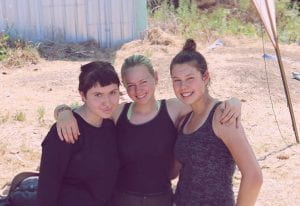
In addition to the many academic opportunities afforded to me through my academic journey, this field of study has also brought me lifelong friends!
My decision to major in anthropology as an undergraduate was a part of a larger vision; one that I had been holding onto since I was 13. In my dreams, being an anthropology student, or more specifically, an archaeologist meant that my life would be filled with meaningful connections and thrilling adventures. What I had not anticipated was the way my family and friends would react to my career choice.
In addition to the many other inquiries I have been presented throughout my educational career, the most commonly asked questions have to do with earning potential or general confusion as to what exactly this field looks like in practice.
Although these kinds of questions were once infuriating, having had the time to develop witty retorts and responses, I’ve grown to love such inquiries. You see, behind all of the misconceptions and Harrison-Ford related fantasies that cloud the true vision of my field, are very real and important skills. The truth of the matter is although my degree may not allow me to afford a super-yacht, I can say that learning to think like an anthropologist has made me a better person.Though this might sound like some kind of line out of a Hallmark card, I truly mean it when I say that my education has enabled me to be better; to work hard, to advocate for others, and to learn how to support those around me in a way that feels uplifting and empowering.
When I first arrived at the University of Washington, I got involved in undergraduate research, working as a part of an archaeology project within the Grand Ronde community. While conducting this research, I have had to become more aware of myself, and begin thinking more critically about my own privilege, but also how I can be a positive presence among those I am working with. This experience has forever changed my heart; I have grown into a person who is open-minded, compassionate, reflective and informed regarding the struggles faced by those living in my own community.
So, when asked about what I plan to do after graduation, how I intend on earning an income, or if I regret taking out loans in order to chase what I have been told is a “pipedream”, I answer honestly, explaining that I’m not quite sure yet. Despite this uncertainty, I can state with confidence that whatever I pursue, I will use my education and training as an anthropologist to be an uplifting force in my profession. After all, it is this training, which has taught me empathy for my neighbors and provided me with a strong sense of what we owe to one another, that has gifted me with my most marketable skills, and so as far as I’m concerned, my education has been absolutely priceless.
